Dopamine
Recent articles
Bespoke photometry system captures variety of dopamine signals in mice
The tool tracks the excitation of an engineered protein that senses dopamine’s absolute levels, including fast and slow fluctuations in real time, and offers new insights into how the signals change across the brain.
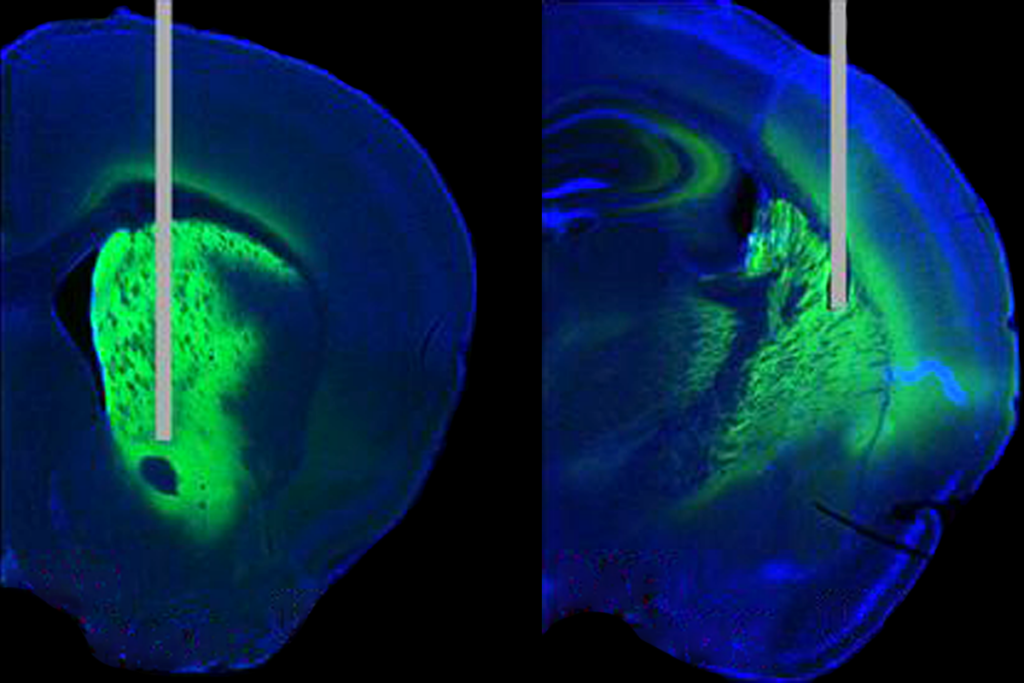
Bespoke photometry system captures variety of dopamine signals in mice
The tool tracks the excitation of an engineered protein that senses dopamine’s absolute levels, including fast and slow fluctuations in real time, and offers new insights into how the signals change across the brain.
Dopamine ‘gas pedal’ and serotonin ‘brake’ team up to accelerate learning
Mice learn fastest and most reliably when they experience an increase in dopamine paired with an inhibition of serotonin in their nucleus accumbens, a new study shows, helping to resolve long-standing questions about the neuromodulators’ relationship.
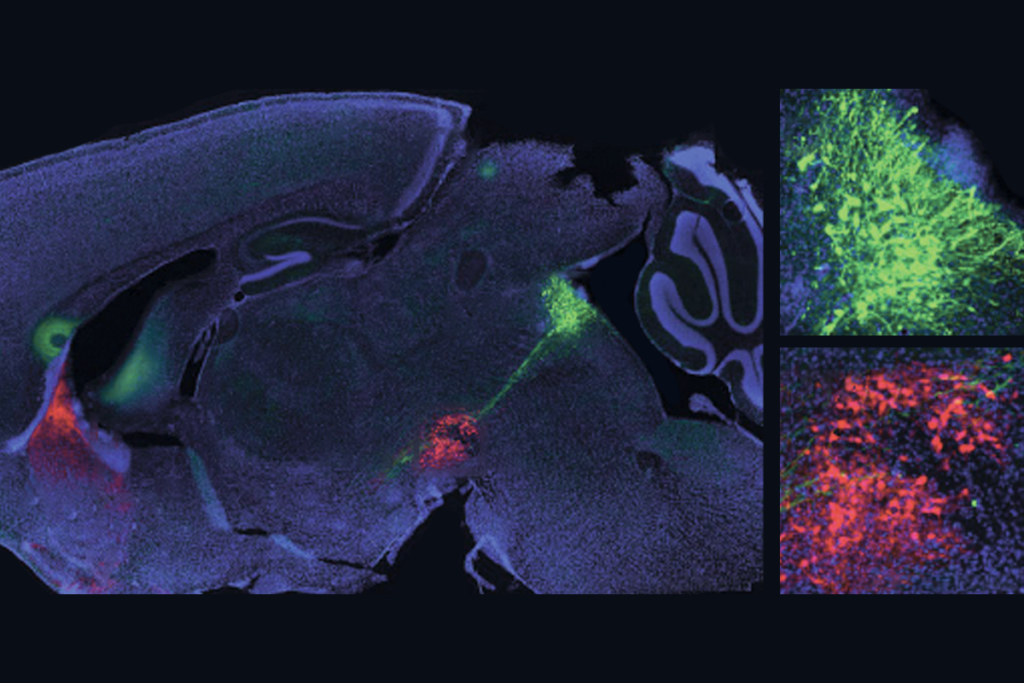
Dopamine ‘gas pedal’ and serotonin ‘brake’ team up to accelerate learning
Mice learn fastest and most reliably when they experience an increase in dopamine paired with an inhibition of serotonin in their nucleus accumbens, a new study shows, helping to resolve long-standing questions about the neuromodulators’ relationship.
Newly characterized striatal circuits add twist to ‘go/no-go’ model of movement control
The two novel pathways control dopamine release in opposing ways and may link motivation and mood to action, a new study shows.
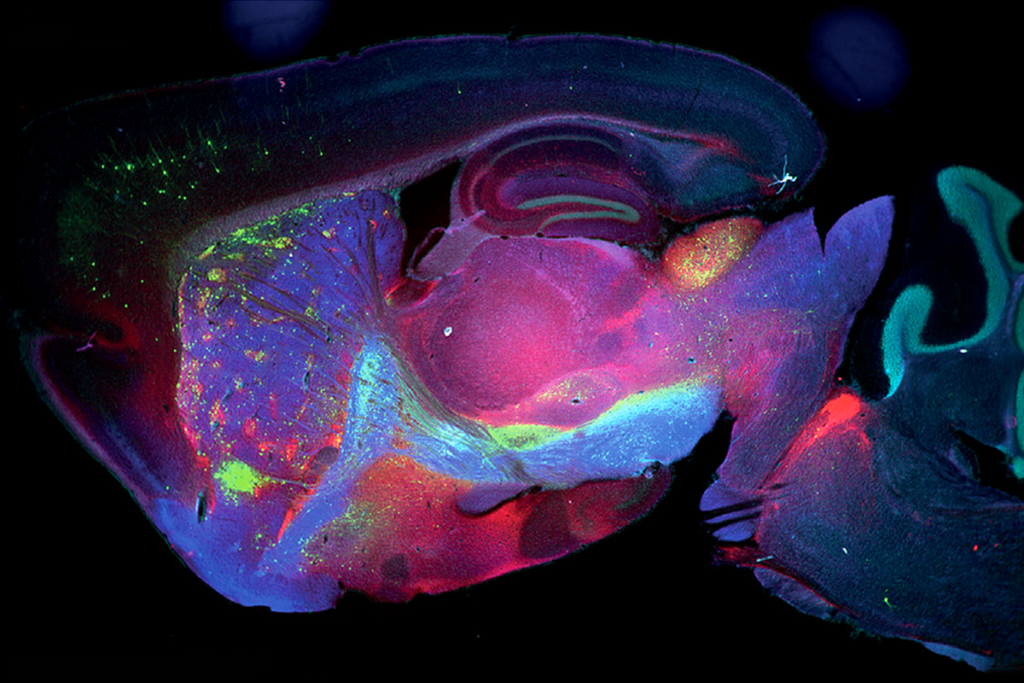
Newly characterized striatal circuits add twist to ‘go/no-go’ model of movement control
The two novel pathways control dopamine release in opposing ways and may link motivation and mood to action, a new study shows.
The Transmitter’s favorite podcasts of 2024
Our picks include a deep dive into dopamine, the role of PKMzeta in memory, and studying the stomatogastric ganglion.
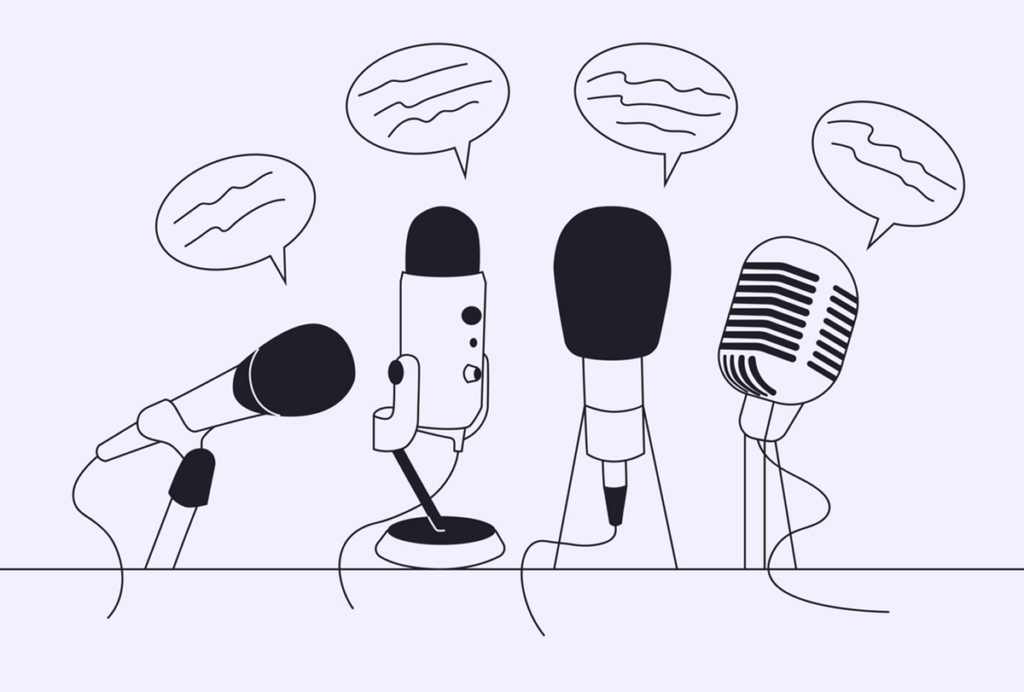
The Transmitter’s favorite podcasts of 2024
Our picks include a deep dive into dopamine, the role of PKMzeta in memory, and studying the stomatogastric ganglion.
In case you missed it: Standout news stories from 2024
These five stories—on the pregnant brain, a failed imaging method and more—top our list of some of the most notable neuroscience research findings this year.
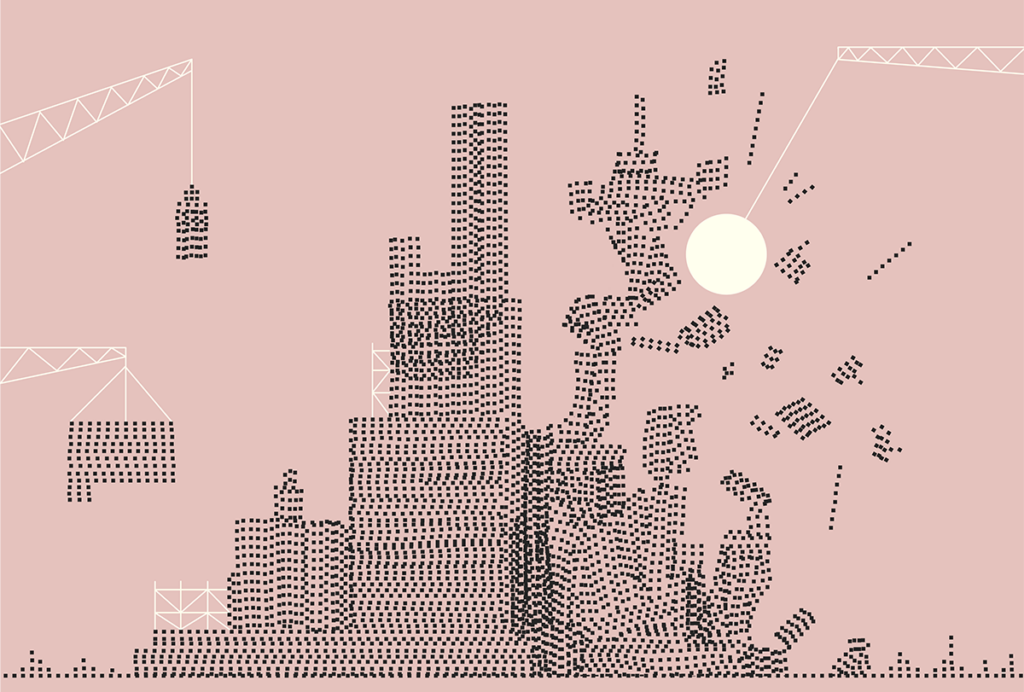
In case you missed it: Standout news stories from 2024
These five stories—on the pregnant brain, a failed imaging method and more—top our list of some of the most notable neuroscience research findings this year.
Vijay Namboodiri and Ali Mohebi on the evolving story of dopamine’s role in cognitive function
Researchers discuss the classic stories of dopamine’s role in learning, ongoing work linking it to a wide variety of cognitive functions, and recent research suggesting that dopamine may help us "look back" to discover the causes of events in the world.
Vijay Namboodiri and Ali Mohebi on the evolving story of dopamine’s role in cognitive function
Researchers discuss the classic stories of dopamine’s role in learning, ongoing work linking it to a wide variety of cognitive functions, and recent research suggesting that dopamine may help us "look back" to discover the causes of events in the world.
Reconstructing dopamine’s link to reward
The field is grappling with whether to modify the long-standing theory of reward prediction error—or abandon it entirely.
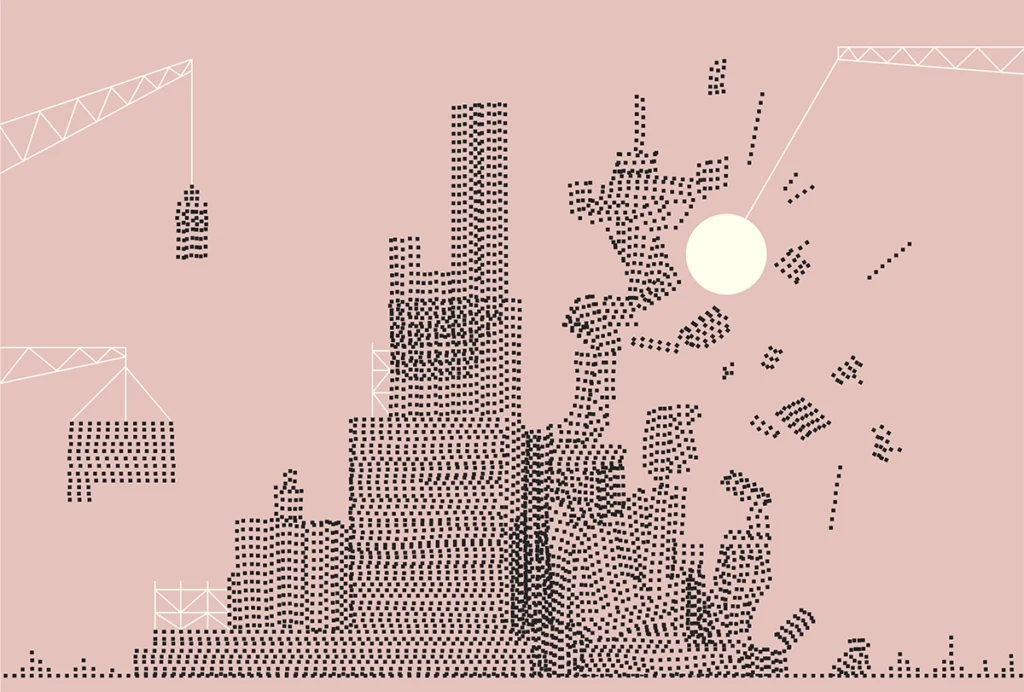
Reconstructing dopamine’s link to reward
The field is grappling with whether to modify the long-standing theory of reward prediction error—or abandon it entirely.
Dopamine and the need for alternative theories
Some experimental findings are inconsistent with the dominant model of reward prediction error, highlighting the need for alternative testable and falsifiable models for dopamine function.
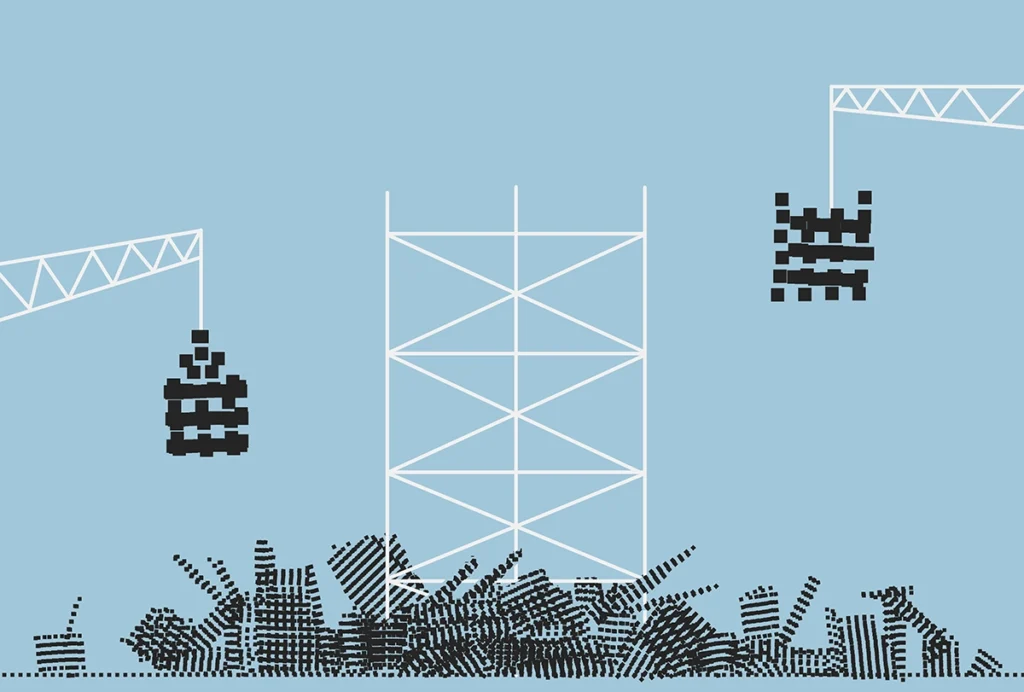
Dopamine and the need for alternative theories
Some experimental findings are inconsistent with the dominant model of reward prediction error, highlighting the need for alternative testable and falsifiable models for dopamine function.
Does a new theory of dopamine replace the classic model?
My answer would be no, but the model poses challenges that will sharpen our understanding of dopamine and learning.

Does a new theory of dopamine replace the classic model?
My answer would be no, but the model poses challenges that will sharpen our understanding of dopamine and learning.
Ketamine targets lateral habenula, setting off cascade of antidepressant effects
The drug’s affinity for overactive cells in the “anti-reward” region may help explain its rapid and long-lasting results.
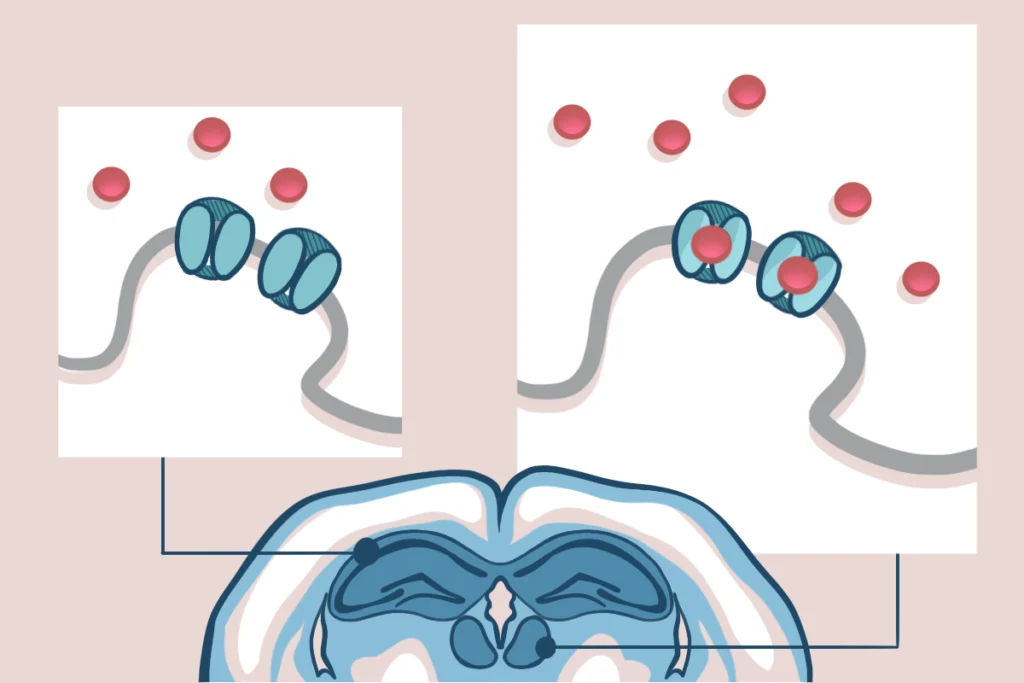
Ketamine targets lateral habenula, setting off cascade of antidepressant effects
The drug’s affinity for overactive cells in the “anti-reward” region may help explain its rapid and long-lasting results.
Explore more from The Transmitter
Coding error caused layoffs at National Institute of Neurological Disorders and Stroke this week, source says
Thirty employees—including 11 lab heads—at the institute should “immediately return to work,” according to an email the institute’s Office of Human Resources sent to top administration at the institute Wednesday evening.
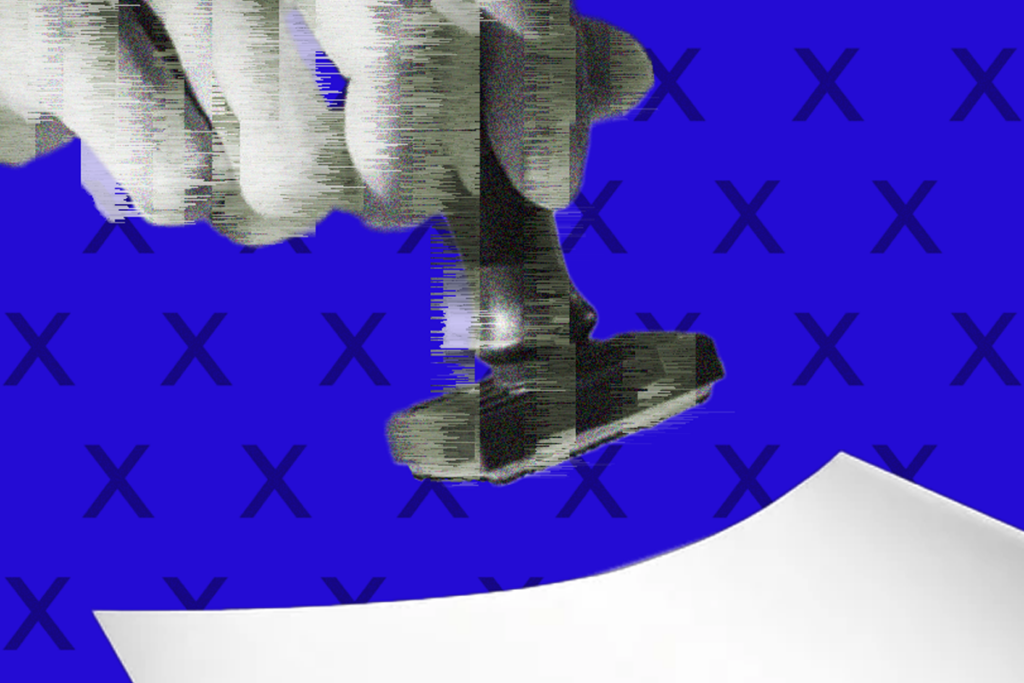
Coding error caused layoffs at National Institute of Neurological Disorders and Stroke this week, source says
Thirty employees—including 11 lab heads—at the institute should “immediately return to work,” according to an email the institute’s Office of Human Resources sent to top administration at the institute Wednesday evening.
PTEN problems underscore autism connection to excess brain fluid
Damaging variants in the autism-linked gene cause congenital hydrocephalus—a buildup of cerebrospinal fluid in the brain—by turbocharging a downstream signaling pathway that promotes the growth of cells, according to a new study.

PTEN problems underscore autism connection to excess brain fluid
Damaging variants in the autism-linked gene cause congenital hydrocephalus—a buildup of cerebrospinal fluid in the brain—by turbocharging a downstream signaling pathway that promotes the growth of cells, according to a new study.
U.S. health agency purge includes 10 lab heads at National Institute of Neurological Disorders and Stroke
The reasons for selecting these researchers—who have led work on neuronal migration, dopamine receptors in neuronal signaling and the structure of ion channels, among other areas—remain unclear.
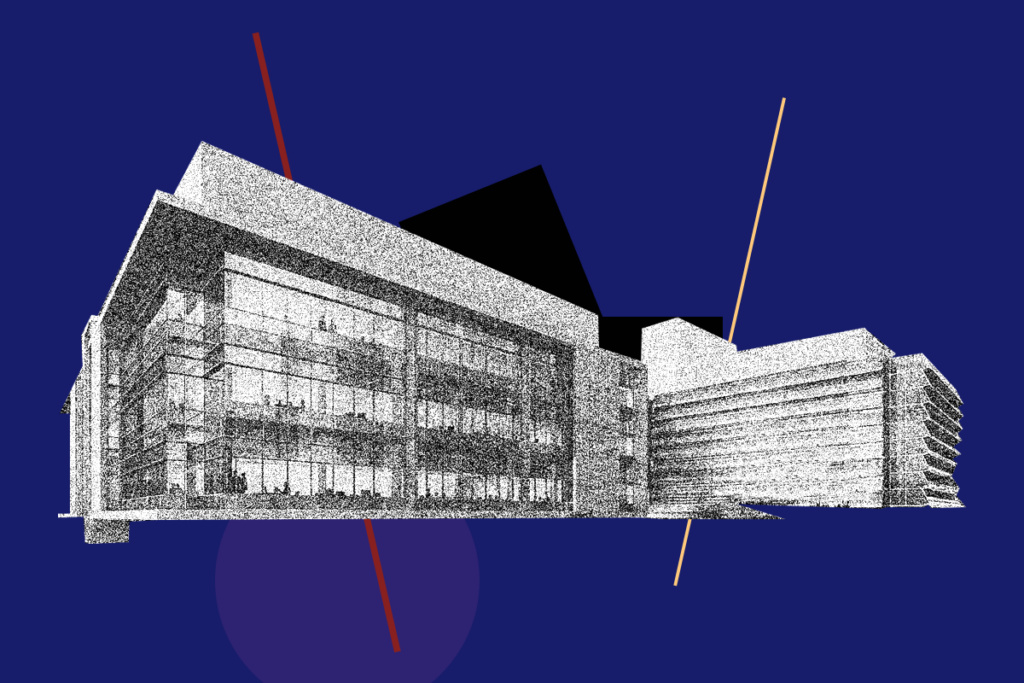
U.S. health agency purge includes 10 lab heads at National Institute of Neurological Disorders and Stroke
The reasons for selecting these researchers—who have led work on neuronal migration, dopamine receptors in neuronal signaling and the structure of ion channels, among other areas—remain unclear.